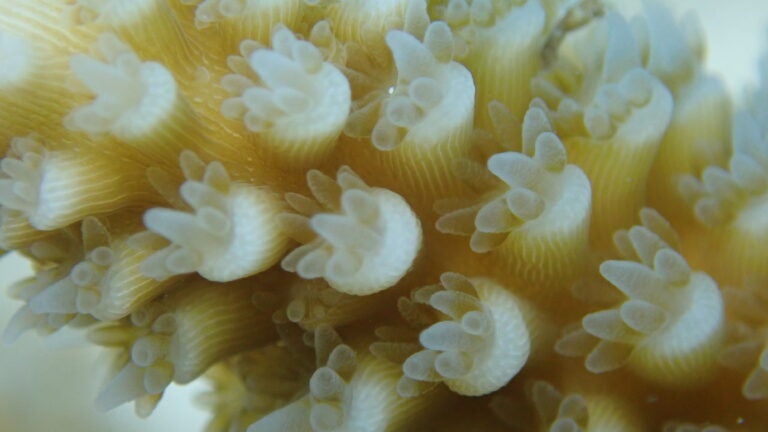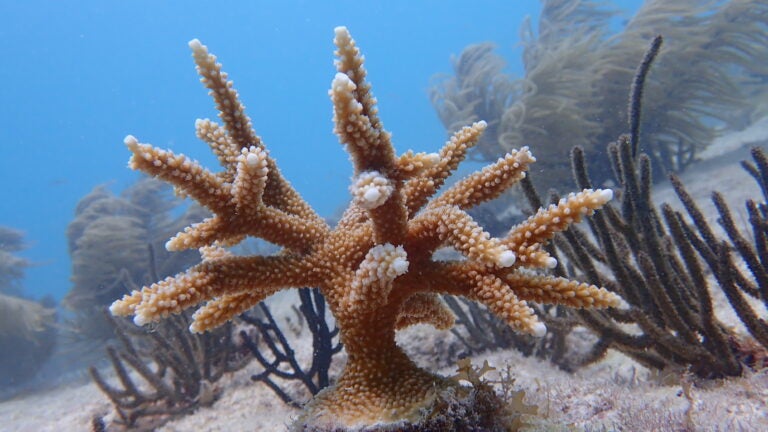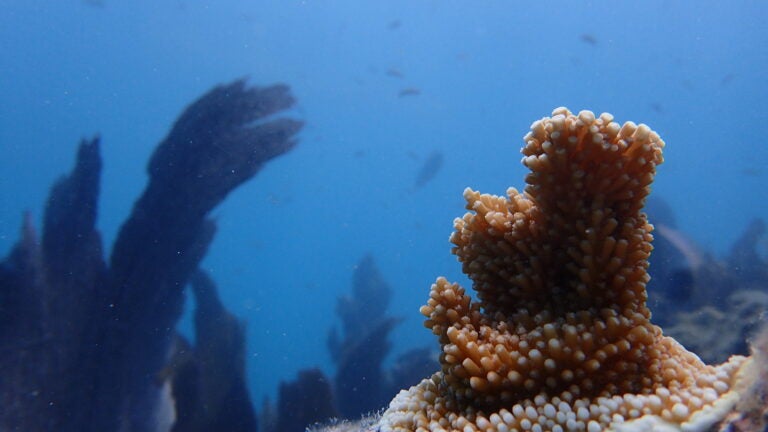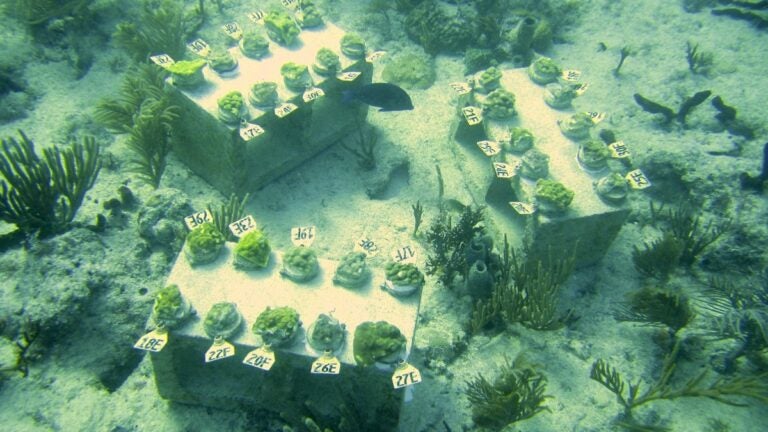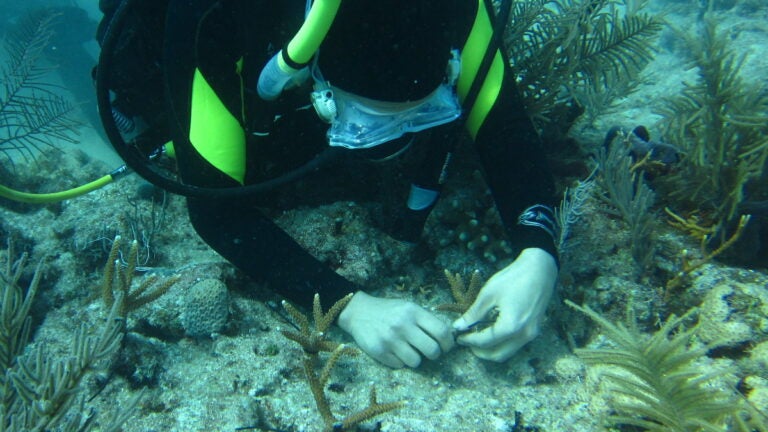Ongoing Projects
Acroporid Floridian Transplant
This NSF-funded project began in 2021 –in collaboration with Ross Cunning (Shedd Aquarium), John Parkinson (USF), Andrew Baker (UM RSMAS), and Craig Dahlgren (PIMS). We aim to fill critical gaps in our understanding of the adaptive capacity of the coral, Acropora cervicornis, by studying how interactions between genetics and environment influence coral growth, survival and thermal resilience. Insights into these interactions, the genes involved in key health traits, and the impacts of nursery rearing on coral performance will inform reef conservation and restoration efforts.
Plasticity
Plasticity is the ability of an organism’s genes to produce a range of physical traits in answer to environmental changes. Climate change threatens many populations because existing traits may be poorly suited to new and rapidly changing conditions. Whether or not populations persist will depend on their ability to adapt to new and evolving habitats. With funding from the NSF ORCC program we aim to understand the role plasticity plays in adaptation to natural environments from the underlying genetic mechanisms that produce plasticity to how coral plasticity impacts reef ecosystems.
Symbiosis
Cooperative interactions between species have played a fundamental role in the evolution of life, but there’s still much to learn about how these relationships develop and persist, especially in the face of rapid environmental change. We’re using field and lab-based studies to study algal, bacterial, and even fungal partners of corals and anemones.
Local Adaptation
Marine environments can vary widely, even over small areas. We aim to understand how cnidarians specialize to local habitats, despite their wide dispersal potential. We are especially interested in ecosystems where spatial environmental changes mimic predicted patterns of global change. These include subtidal temperature gradients in the Florida Keys, CO2 seeps in Papua New Guinea, and the volatile environment of California’s rocky intertidal.
Translational Ecology
The current rate of climate change is threatening ecosystems worldwide. In addition to the loss of critical services, we also face losing unique aspects of their biology, which fuel scientific discovery. A significant part of our work focuses on supporting ecosystem management with science. We have helped form guides for coral reef restoration, & developed methods for investigating the dynamics of harmful algal blooms.
